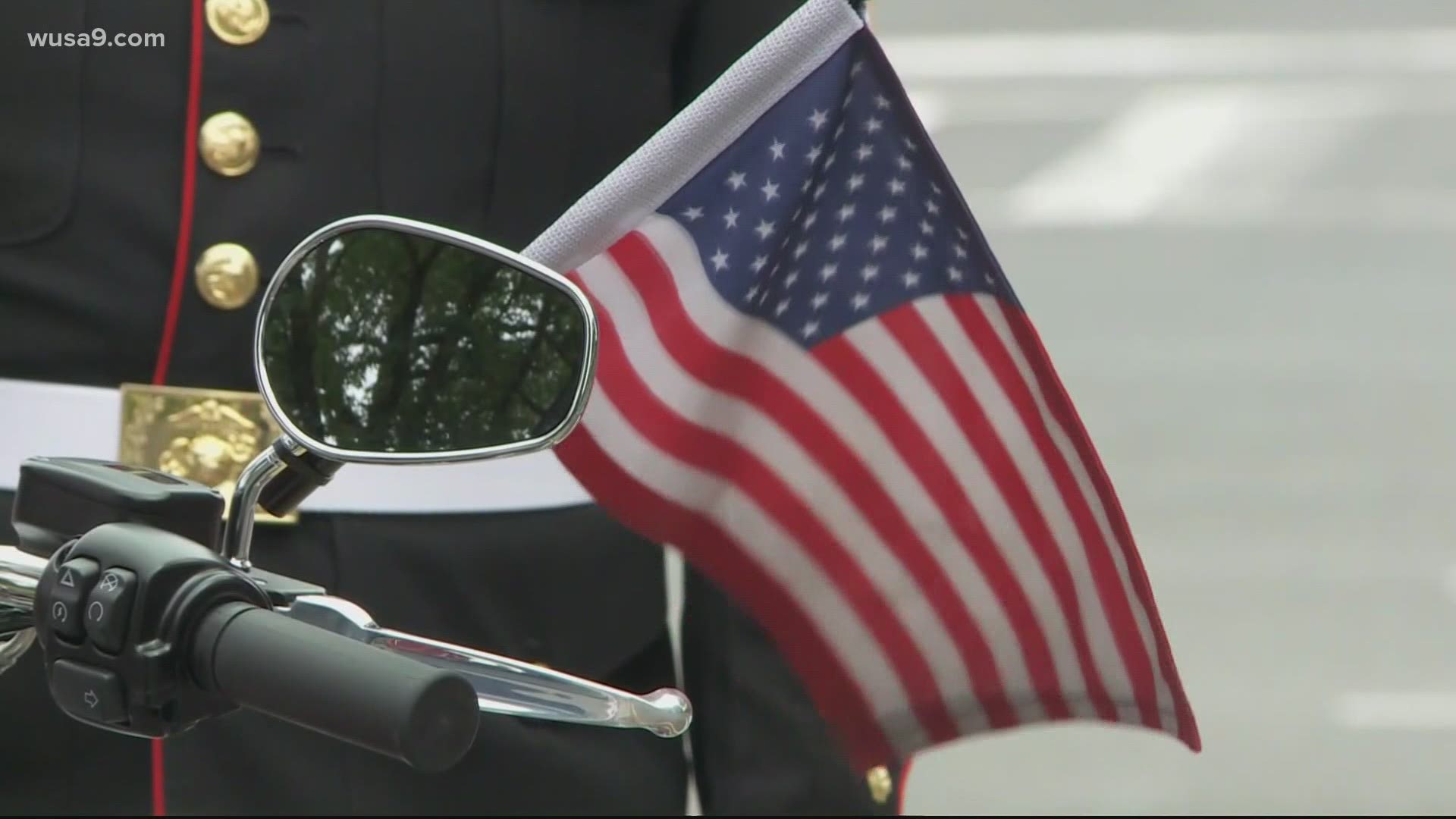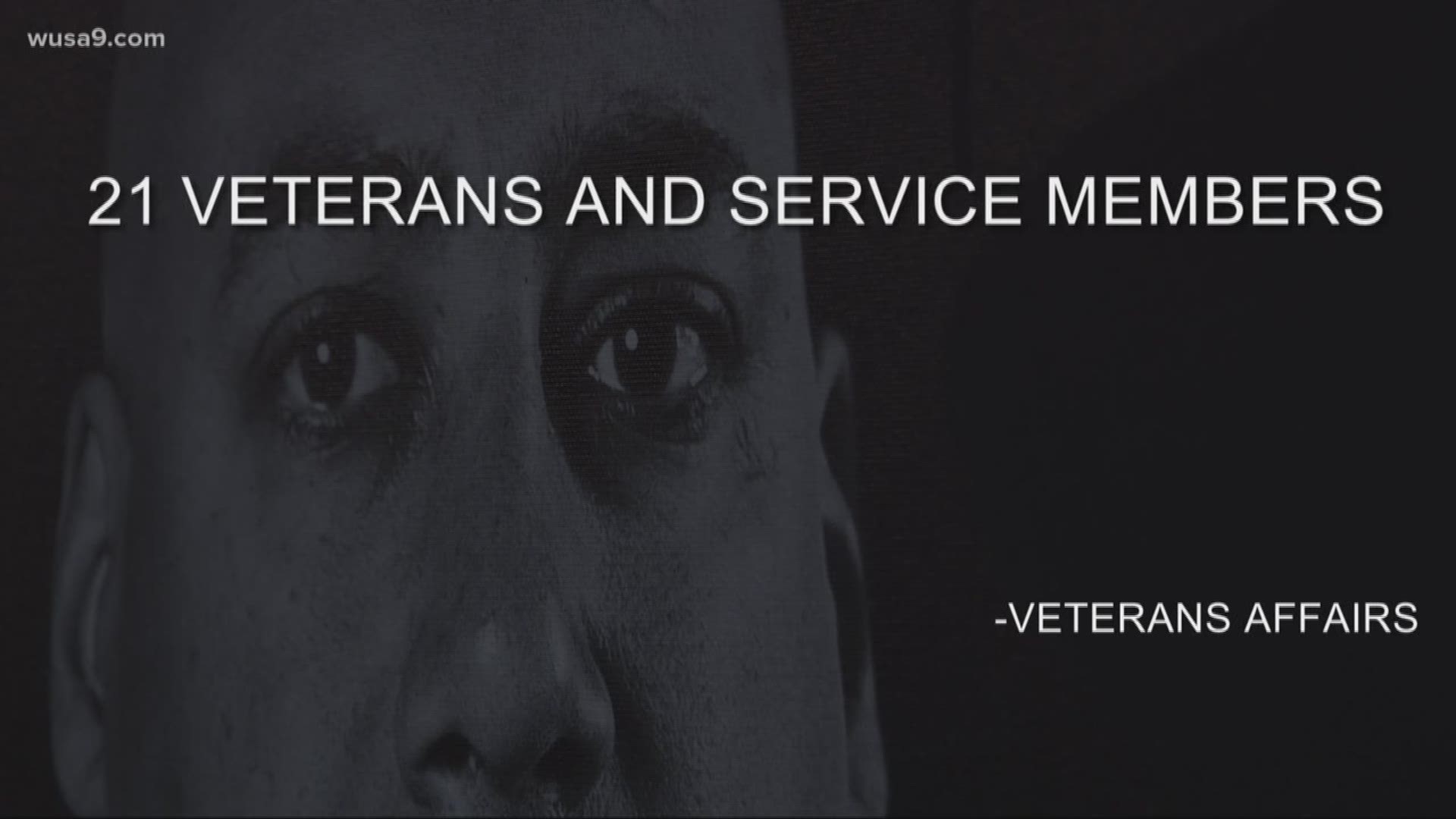WASHINGTON — No community has been left untouched by the COVID-19 pandemic, and a new survey shows that veterans are also struggling with mental health as cases surge.
“Things are rocky, but things are rocky for everybody," Army veteran Helyn Stowe said. "Days are great, days are good, days are fair.”
Days have been tough for Stowe since she was nearly killed by a suicide bomber in Afghanistan and retired from the Army in 2012. Since then, she has grappled with a traumatic brain injury and PTSD.
“I kind of lost my purpose," Stowe said. "What do you do after you’ve been in the military for so long? Where do you go?”
Stowe found her solace in her service dog, Astro, who stopped her from taking her own life years ago.
“Even though I may feel at that time, it’s just as much as I can handle, he’s there to say hey we got this," she said.
While Stowe, a self-proclaimed introvert, said she has been doing okay during the pandemic, the Wounded Warriors Project said thousands of veterans are really struggling.
It surveyed 30,000 vets this spring and discovered:
- 52% said their mental health was worse during the pandemic
- 49% said their physical health was worse
- 61% said they felt disconnected from friends, family, and the community
“When COVID shut all that down, it really created kind of a perfect storm that threatened the mental health of all the warriors we serve," Wounded Warrior Project CEO Mike Linnington said. "Financial stress has also added to that storm, if you will. Job loss for veterans and for caregivers, family members, and caregivers has exacerbated an already tough time for veterans in isolation.”
Linnington recently retired as a three-star Lieutenant General after serving in the Army for 35 years. Now, he heads the Wounded Warrior Project.
He said when the pandemic hit, it forced the organization to pivot to virtual programs to continue helping the 185,000 vets they serve.
Linnington said the silver lining has been the ability to reach even more vets who may not have been able to make it to their in-person programs.
“I think on Veterans Day in particular, that would be a good day to find veterans who are isolating and not integrating in the community, reach out, call, find out where they need help," he said.
Helping other vets is what has given Stowe that purpose she said she was searching for when she retired from the military.
“I think that’s when we’re all feeling good when we’re doing something for somebody that might be thinking about checking out," she said.
Linnington has three pieces of advice for vets who are struggling with their mental health:
- Treatment works, so seek it out
- You're not alone
- Once you're in the programs and starting to heal, you'll be able to help others heal, too.
You can find more information on how to get help from the Wounded Warrior Project here.


